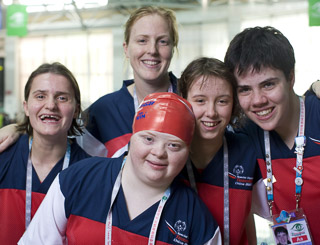Intellectual disabilities (IDs) are a diverse range of conditions affecting cognitive functions, and they are often surrounded by stigmas and misconceptions. It is crucial to break down these barriers to foster understanding and inclusivity. This article explores common myths and facts surrounding intellectual disabilities, shedding light on the realities faced by individuals with intellectual and developmental disorders.
Myths vs. Facts:
Myth: Intellectual Disabilities are Uniform:
● Fact: Intellectual disabilities encompass a spectrum of conditions, each unique in its characteristics and challenges. This diversity includes conditions like Down syndrome, Fragile X syndrome, and other disorders of intellectual development.
Myth: Intellectual Disabilities Only Affect Children:
● Fact: Intellectual disabilities can persist into adulthood, and the support needs may evolve. Understanding and addressing the specific challenges faced by adults with intellectual disabilities is crucial for ensuring their well-being and inclusion in society.
Myth: Treatment Can Cure Intellectual Disabilities:
● Fact: While there is no cure for intellectual disabilities, early intervention and appropriate support can significantly improve the quality of life for individuals. Various therapies and educational interventions aim to enhance adaptive skills and independence.
Myth: All Intellectual Disabilities are Easily Diagnosed:
● Fact: Diagnosing intellectual disabilities is a complex process that involves assessing intellectual functioning and adaptive behaviors. Professionals use standardized tests and criteria to determine the presence and severity of an intellectual disability.
Myth: People with Intellectual Disabilities Cannot Lead Fulfilling Lives:
● Fact: With proper support, individuals with intellectual disabilities can
lead fulfilling lives, pursuing education, employment, and meaningful relationships. Society’s understanding and acceptance play a crucial role in empowering individuals with intellectual disabilities.
Types of Intellectual Disabilities
Intellectual disabilities can manifest in various forms, including Down syndrome, autism spectrum disorder, and specific learning disabilities. Each condition presents unique challenges and strengths, requiring tailored approaches to support and inclusion.
Intellectual Disability Services
A comprehensive approach to supporting individuals with intellectual disabilities involves a range of services. These may include educational programs, vocational training, therapy, and community-based initiatives aimed at promoting independence and social integration.
Intellectual Developmental Disorder (IDD)
IDD is an umbrella term encompassing both intellectual and developmental disabilities. Understanding IDD as a spectrum emphasizes the need for personalized interventions that recognize the diverse needs of individuals with intellectual challenges.
Challenging Stereotypes
People with intellectual disabilities are often subjected to stereotypes that perpetuate stigma. Challenging these misconceptions involves fostering inclusive environments, promoting education, and advocating for policies that ensure equal opportunities for all.
Breaking stigmas surrounding intellectual disabilities is an ongoing effort that requires education, empathy, and a commitment to inclusivity. By dispelling myths and embracing the facts, society can create a more supportive and understanding environment for individuals with intellectual and developmental disorders. It is crucial to recognize the inherent value and potential of every individual, irrespective of their cognitive abilities, and work towards a world where everyone can thrive.

